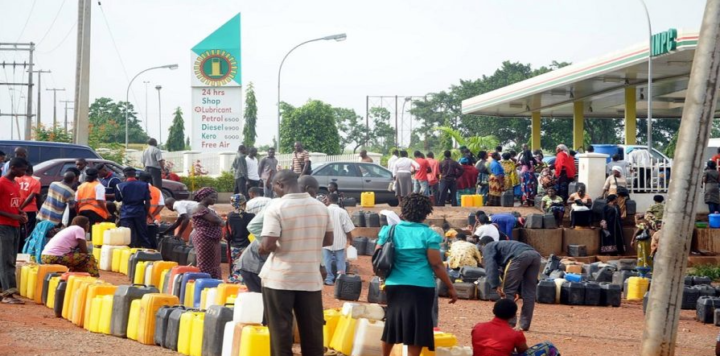Fuel stations in the Federal Capital Territory of Abuja were observed selling gasoline at elevated prices on Friday, October 20, with rates ranging from N625 to N630 per liter, as reported by Infostride News.
Infostride News conducted a review and uncovered the following pricing details:
1. Conoil station in Central Area was selling fuel at N625 per liter.
2. Shema station along Kubwa Road was selling fuel at N630 per liter.
3. AYM Shafa station in Karu was selling fuel at N630 per liter.
4. A.A Rano station at the popular AYA junction was selling fuel at N625 per liter.
5. Nipco station in Mararaba was also selling fuel at N625 per liter.
It’s important to note that despite the unofficial increase in fuel prices, there were no significant queues at the stations currently in operation. Major stakeholders in the downstream oil sector have yet to address this price issue. Commuters have been feeling the impact of these unofficial price hikes through increased transportation costs. However, retail stations under the Nigerian National Petroleum Company Limited (NNPCL) continue to sell fuel at the official price of N613 per liter.

Several factors contribute to the recent increase in pump prices:
1. **Global Crude Oil Prices:** The ongoing Israel-Hamas conflict has led to a surge in global crude oil prices, with the price reaching $93.37 per barrel as of the reporting date (Friday, October 20, 1:38 PM, GMT+1). This international development has a direct impact on local fuel prices.
2. **Exclusive Fuel Importing by NNPCL:** NNPCL has taken over as the sole fuel importer in Nigeria, effectively sidelining other marketers from importing fuel. This shift places the responsibility for importing fuel for the entire country on NNPCL’s shoulders, which has resulted in external fuel storage depots running low. Independent marketers are finding it challenging to import fuel due to difficulties in accessing foreign exchange.
Despite the increased pump prices, fuel scarcity in Abuja is not as severe, with no visible fuel queues in the city. However, some retail fuel stations remain closed. In response to the high fuel prices, many vehicle owners in Abuja have resorted to alternative commuting arrangements. Instead of filling their vehicle tanks, they are opting for public transportation or ride-hailing taxi services. This change in behavior is due to the significant increase in fuel prices per liter compared to the previous cost of N185 per liter, which was common before the official removal of fuel subsidies in May 2023.
Mele Kyari, the Group Chief Executive Officer of NNPCL, had announced in May 2023 that market forces would determine fuel pump prices following the removal of fuel subsidies. However, Nigerians like Ifeanyi Igwe have expressed frustration, stating that fuel pump prices continue to rise, resulting in increased costs for essentials like food and transportation. Questions have also been raised about the role of the Nigerian Midstream and Downstream Petroleum Regulatory Authority (NMDPRA) in addressing these issues.
Chinedu Ukadike, the Public Relations Officer of the Independent Petroleum Marketers Association of Nigeria (IPMAN), pointed out the challenges faced by independent marketers in importing fuel. He emphasized that most private depots have run out of stock because they rely on NNPC Limited for supplies. Despite deregulation, NNPC remains the sole importer of Premium Motor Spirit (PMS), contributing to the current situation and encouraging profiteering.
Support InfoStride News' Credible Journalism: Only credible journalism can guarantee a fair, accountable and transparent society, including democracy and government. It involves a lot of efforts and money. We need your support. Click here to Donate
